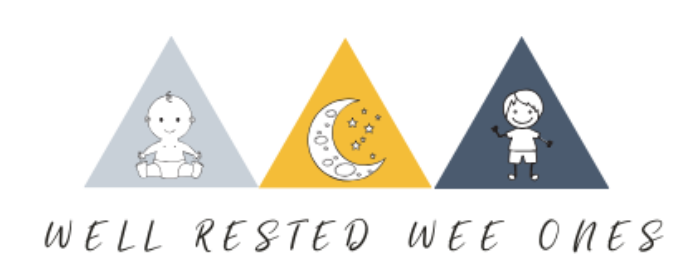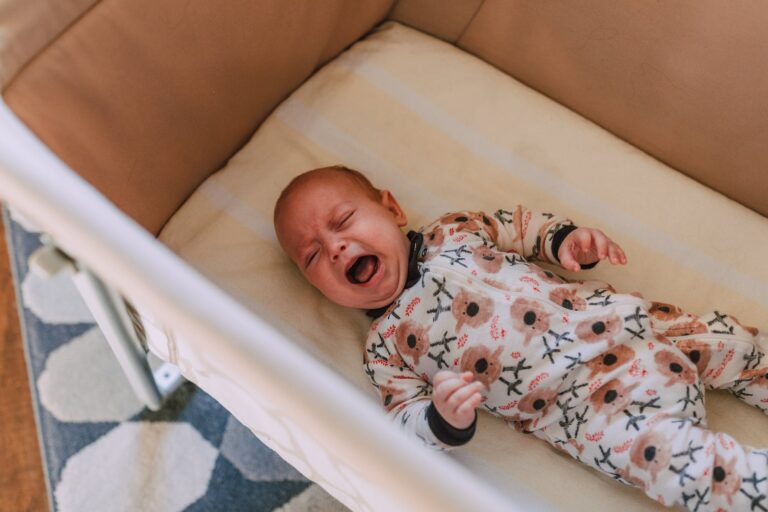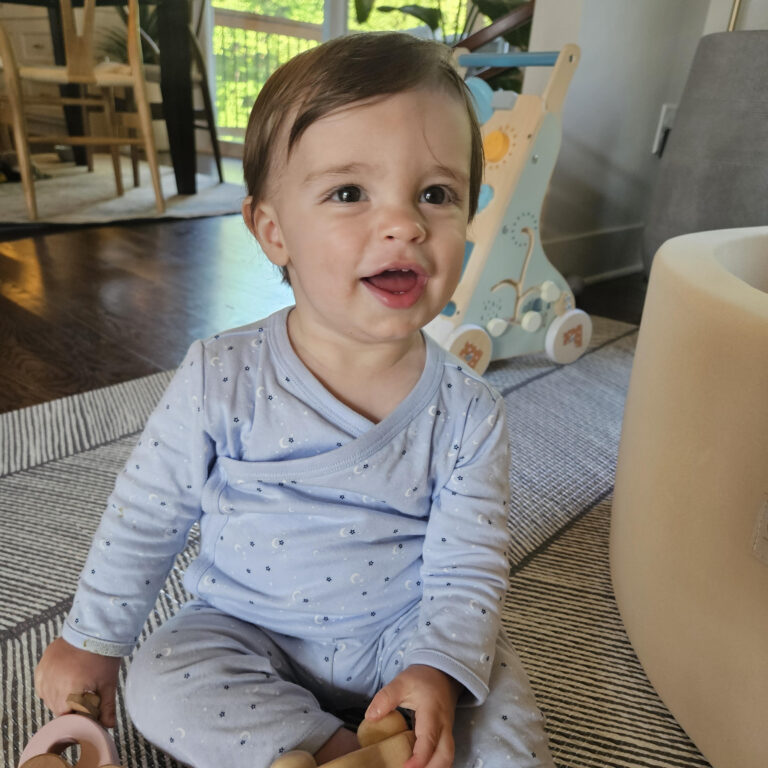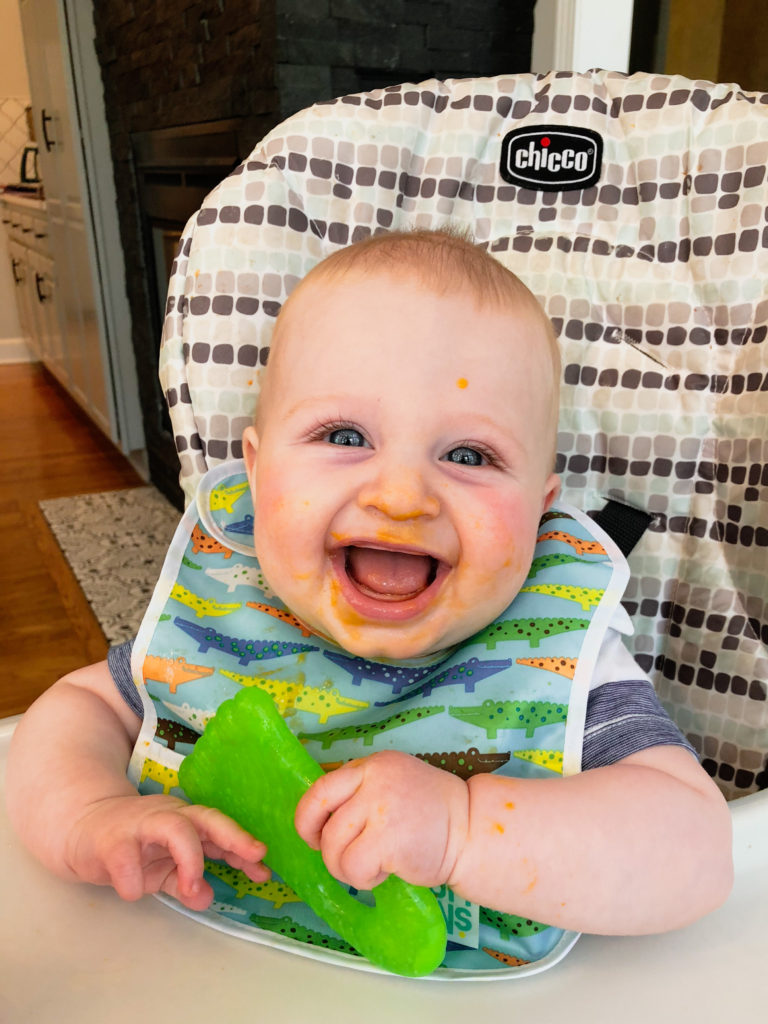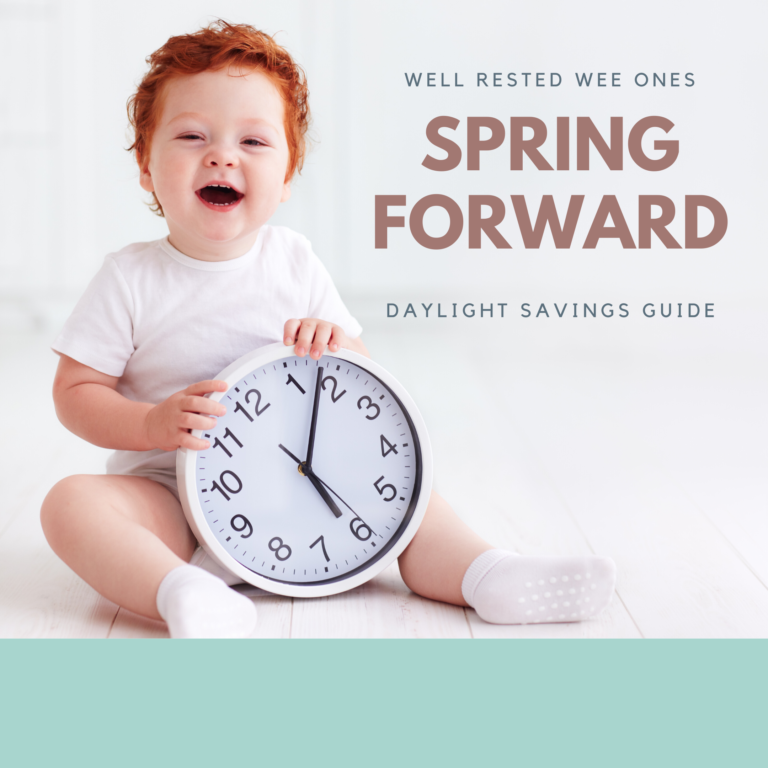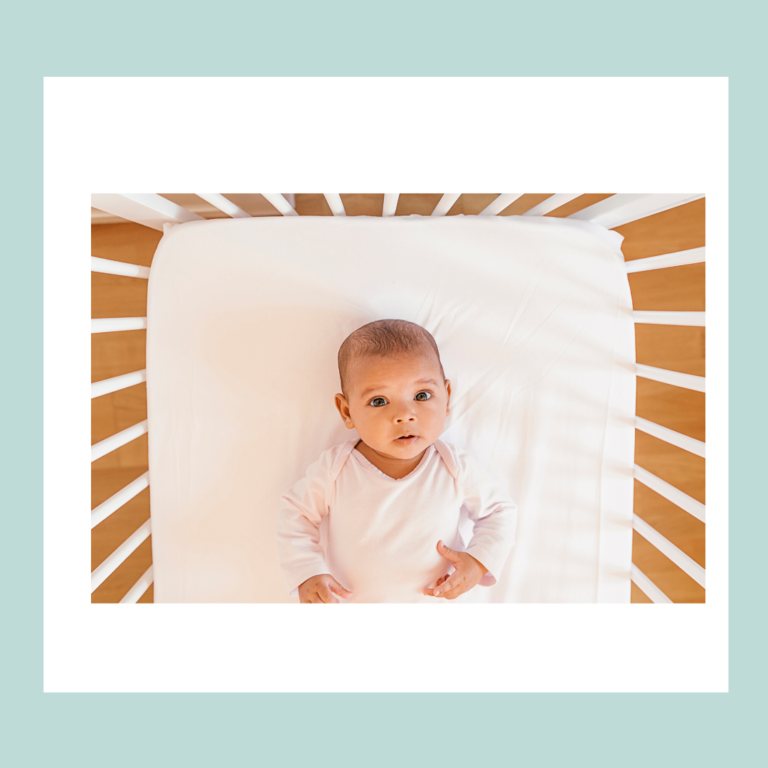Introducing a Pacifier to Your Baby
Pacifier, Dummy, Binky…Whatever you want to call it! Here’s the scoop on introducing a pacifier to your baby.
A pacifier can be a great option to help calm a fussy or crying newborn as well as provide an opportunity for nonnutritive sucking.
Newborns love to suck!
Newborns are born with an innate sucking reflex. You may have even seen an ultrasound picture of your baby with their thumb in their mouth sucking away! Yes, this happens in utero.
Once your baby is out in the world they still need to suck….ALOT! They will be feeding ALOT–8-12 times a day. And outside of these feeds, they will also want to suck which is when a pacifier can come in handy. Nonnutritive sucking is when your baby is sucking on a pacifier, their thumb, on the breast, or bottle after finishing a feed. This type of sucking is very relaxing for newborns and can help to calm them. If you’re an expecting or new parent my Newborn Feeding and Sleep Guide is full of tips for healthy sleep foundations and calming your newborn.
Pacifiers Can Reduce the Risk of SIDS
Research shows that newborns up to 6 months of age who are sucking on a pacifier while falling asleep are at a lower risk of SIDS.
Practicing safe sleep is the number one way you can reduce the risk of SIDS.
When to Introduce a Pacifier
Experts have varying opinions on when to introduce a pacifier if you are breastfeeding. I recommend introducing a pacifier around 2-4 weeks of age if you are breastfeeding. This helps you establish a foundation for your breastfeeding relationship with latch and get into a rhythm with nursing. It also helps you learn and identify your baby’s hunger cues such as rooting and sucking on their hands.
If you are bottle-feeding, most experts agree you can introduce a pacifier from day one.
How to Introduce the Pacifier
To engage the sucking reflex use a pacifier that you can put your finger inside of such as an Avent Soothie. (One of my favorites). Put your finger inside the pacifier and point the pacifier up to the roof of the mouth. This helps to engage the sucking reflex and encourages sucking.
Once your baby is actively sucking on the pacifier try playing “paci tug of war” where you gently pull on the pacifier to try to remove it from their mouth. Your baby will start to suck more vigorously and is less likely to give it up. This can also help your baby learn to keep the pacifier in their mouth.
How Long Should You Use the Pacifier?
There are certainly benefits to using the pacifier in the first 4-6 months of life. But after 6 months of age, the cons start to outweigh the pros when it comes to pacifier use.
- The pacifier becomes more of an emotional attachment making it harder to remove after 6 months
- The risk of otitis media (ear infection) increases with use after 6 months of age
- Using a pacifier can take away from your baby exploring objects with their mouth–new textures and oral stimulation
- It can affect speech development and take away from opportunities to communicate with caregivers
- It can affect the proper growth of the mouth and teeth that are misaligned
- Babies can become dependent on it for sleep-whether it’s a parent that has to replace it for them to fall asleep, overnight, or for a nap, or baby is waking up and searching for it and crying because they can’t find it
Best Tips for Using a Pacifier
- Offer it to newborns when falling asleep and to help calm with nonnutritive sucking
- Once your baby is 5-6 months of age the sucking reflex will fade-Try other soothing strategies before offering the pacifier
- Provide opportunities to play without the pacifier
- Limit to the crib with sleep
- Start to remove from the mouth once falling asleep to help promote other self-soothing strategies and wean away from sleep
- It is easiest to remove it around 6 months of age
Need sleep support?
If the pacifier is causing more problems than good…I have a class for you! The 4-24 Month Well Rested Collection will walk you step-by-step through a completely customizable sleep training experience. In just a few weeks, your baby will be getting 11-12 hours of independent night sleep, AND you’ll have a plan to navigate any future regressions or bumps in your journey. I’ll also help you set up a daytime routine and nap schedule that fits your family’s lifestyle and values. And you’ll get age-specific guidance to meet your baby right where he or she is developmentally at every stage from now until your baby turns 2.
I also offer 1:1 personalized sleep coaching to families including newborn support and sleep training plans starting at 4 months of age! I have multiple options that can help you get your baby’s sleep back on track!
Please Share this Post with a Mama!
